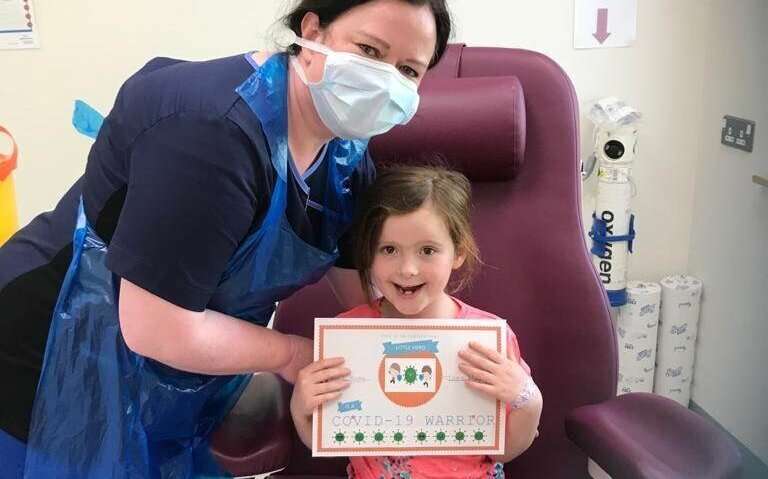UK-wide study shows children with gastrointestinal symptoms should be included in COVID-19 testing strategies


Over 1,000 children from Northern Ireland, Scotland, England and Wales, known as “COVID Warriors” have had their antibodies measured in the UK-wide trial called “Seroprevalence of SARS-Cov-2 infection in healthy children.”
The findings have been published today (Friday 28 August) as a preprint on the server MedRxiv.
The study is led by Queen’s University Belfast, in partnership with the Belfast Health and Social Care Trust Northern Ireland and Public Health England.
The aim of the study, which began in May and is ongoing, is to assess the number of children who have had COVID-19, the symptomatology of infection and if those children have antibodies that may be able to fight off the infection.
To conduct the study, the researchers are measuring children’s COVID-19 antibodies via blood tests at baseline, with further tests planned at two months and six months.
The researchers have found that following the first wave of the pandemic, seven percent of the children tested positive for antibodies, indicating previous infection with COVID-19.
Half of the children with COVID-19 reported no symptoms, and gastrointestinal (GI) symptoms (such as diarrhea and vomiting) were also more common than cough or changes in the children’s sense of smell or taste, which may have implications for the testing criteria used for children.
The findings also showed young children under 10 years of age were just as likely to have evidence of prior infection as older children, and that asymptomatic children were just as likely to develop antibodies as symptomatic children.
Dr. Tom Waterfield, researcher from the Wellcome-Wolfson Institute for Experimental Medicine at Queen’s University Belfast and lead on the study said:
“Following the first wave of the pandemic in the UK, we have learnt that half of children participating in this study are asymptomatic with SARS-CoV-2 infection, and those with symptoms do not typically have a cough or changes to their smell/taste, with GI upset a far more common symptom. This study has shown that we may want to consider refining the testing criteria for children to include GI symptoms.”
Health and Social Care Research & Development Division (HSC R&D Division) of the Public Health Agency plays an ongoing role in supporting the conduct of high-quality health and social care research and has provided funding to support the delivery of this important study.
Source: Read Full Article